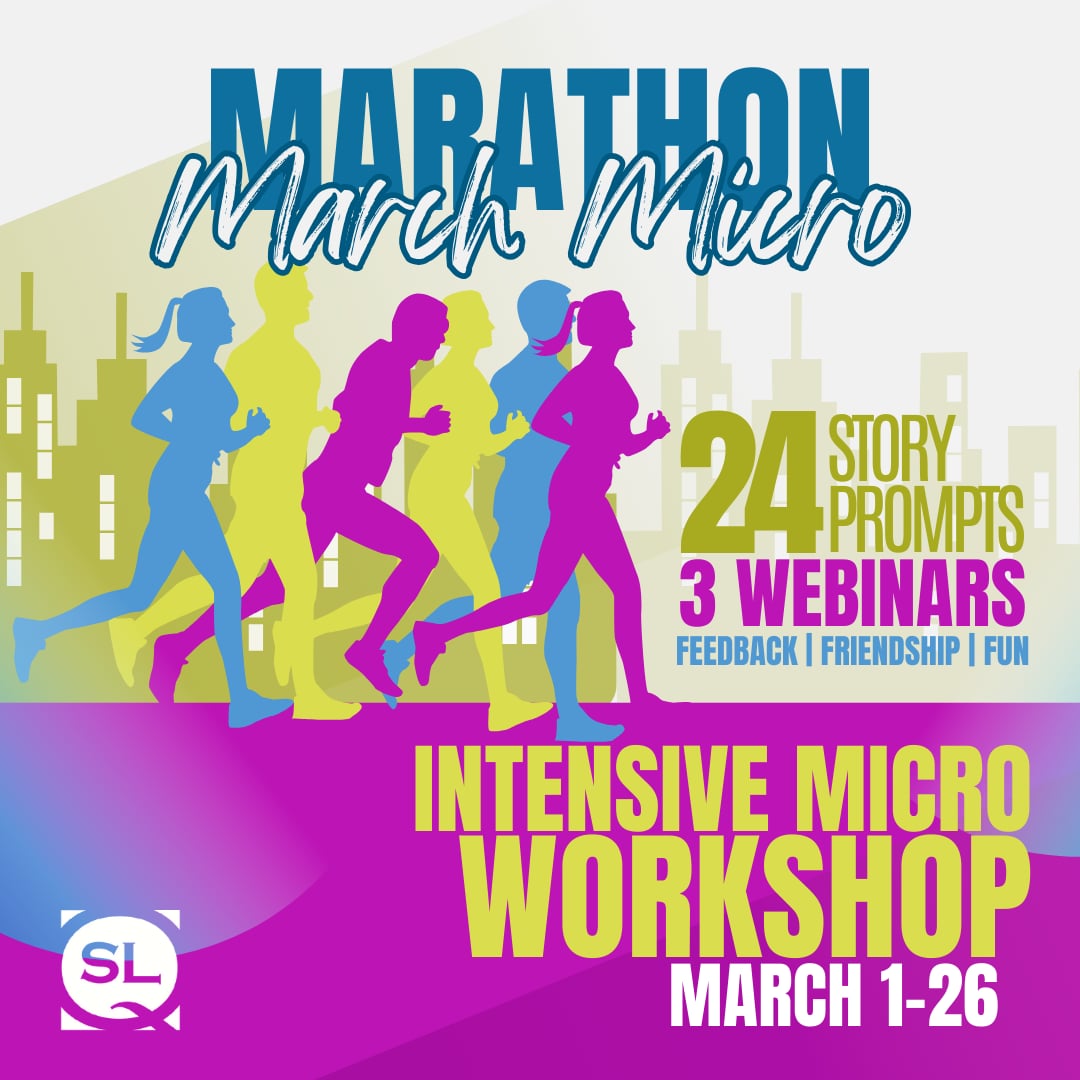
In SmokeLong‘s “Why Flash Fiction?” series, flash fiction writers and editors explore what draws them to the form, from the first time they wrote a piece of flash to why flash resonates with them. In this column, writer Myfanwy Collins shares how flash taps into her truest self. Submit your own “Why Flash Fiction?” article or other flash-related essays on our Submittable page!
By Myfanwy Collins
I found this line in a document from June 2012: “It is always a Sunday afternoon in April.” It’s the only line in the document. I have no idea why it struck me. It’s not a great line, but I must have seen some starting point. A way in.
Typically, my flash starts with just such a line that sticks to my mind’s windowscreen, latching on with spindly legs, hoping to be let in though it does fully not know why. The moment to explore this line has passed but at one time it lingered in a moment, blazed brightly.
*
I breathe and think and move because I was built this way. I tell. I tell the truth. I speak. I translate my emotion into words. I feel. I breathe. I blink and unless I capture you with my words, you, and the emotion you carry with you, are gone.
*
I wrote my first flash fiction in 1991 when I was a senior in college. I had no idea at the time that it was flash fiction. What I was doing, I thought, was writing a novel for my senior honor’s project. In reality, what I did was write a novel in flash. Each chapter was self-contained, often lyrical, filled with imagery and emotion, hoping to catch the reader at the end with an understanding that something true had happened between us.
The novel remains unpublished (as it will) but that is where I cut my teeth, gnawing on the typewriter ribbon that powered the printer of my word processor.
I understand now that I gravitated to the form because I chose vulnerability, pure emotion. I was trying to get to the heart of the heart, my own.
*
Novels, short stories, connect to one part of my consciousness. That is the more logical, process-oriented, storytelling part of my brain. Flash tunnels into my emotion, digging out the hurt and the hurting, the ugly beauty.
I spent some years when there was both exquisite joy and deep sadness. When I sought to document this emotionally turbulent time, I turned to flash. I wrote it out hard and fast and posted it on my blog without caring if there was an audience or not. You may call it self-indulgent if you wish to, but I call it vellum.
The original vellum was animal skin upon which one would write. It was irreproducible. One skin. One of a kind. My blog is made of nothing concrete. Packets stitched together by code and shot through air and light and sound. Ether.
But why? Why peel my skin away and reveal the aged, wasted sinew and bone?
I fall back to when the human mind first began to understand storytelling in a philosophical way. Flash, then, is something about mimesis and catharsis. Holding the mirror up to a scream.
And so, I write these pieces upon my own weathered skin. I write with the insect legs and the coil of my veins. Flash is my emotional autobiography, representing this compulsion to mine my truest self. My dark heart lives there, and my light.
 Myfanwy Collins (@MyfanwyCollins) lives in Newburyport, Massachusetts. For more information, please see www.myfanwycollins.com.
Myfanwy Collins (@MyfanwyCollins) lives in Newburyport, Massachusetts. For more information, please see www.myfanwycollins.com.

